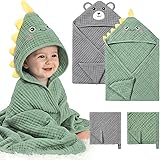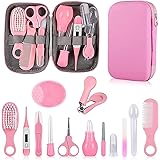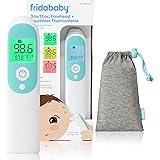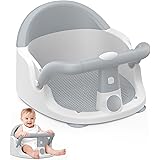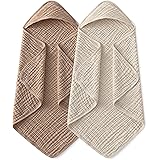As parents, don’t we all wish to provide the safest, most nurturing environment for our little ones? When it comes to their delicate skin and overall well-being, choosing the right products is paramount. The video above highlights a crucial point: babies truly need products featuring natural ingredients that are also effective against germs. It’s a balance many parents strive for, ensuring gentle care without compromising on protection.
The Sensitive World of Baby Skin: Why Natural Ingredients Matter
A baby’s skin is remarkably different from an adult’s, making the choice of hygiene products a critical decision. Their skin is significantly thinner and still developing its protective barrier, making it more permeable and susceptible to irritation. This delicate structure means it can easily absorb substances applied to it, whether beneficial or potentially harmful.
Understanding these vulnerabilities helps explain why natural ingredients are often preferred for infant care. Harsh chemicals, synthetic fragrances, and artificial dyes commonly found in conventional products can strip away natural oils, disrupt the skin’s pH balance, and trigger allergic reactions or eczema. Opting for products designed with natural, mild formulations can significantly reduce these risks, supporting the skin’s natural development and maintaining its health.
Decoding “Natural”: What to Look for in Baby Health and Hygiene Products
The term “natural” can sometimes be broadly applied, so it’s essential for parents to understand what truly constitutes a beneficial natural ingredient for their baby. Generally, these are components derived from plants, minerals, or other natural sources, processed minimally to retain their beneficial properties. Ingredients like chamomile, aloe vera, calendula, and oat extract are celebrated for their soothing, anti-inflammatory, and moisturizing qualities.
Conversely, discerning parents often look to avoid substances such as parabens, phthalates, sulfates, synthetic fragrances, and dyes, which are known irritants or potential endocrine disruptors. When evaluating baby health and hygiene products, always check the ingredient list. Look for certifications that indicate organic origin or dermatologist testing for sensitive skin, ensuring that what you’re putting on your baby is genuinely gentle and safe.
Effective Germ Protection Without Harshness for Your Little Ones
While nurturing sensitive skin is vital, ensuring robust germ protection is equally crucial for a baby’s developing immune system. This creates a unique challenge: how to be tough on germs without being tough on baby skin? The answer often lies in thoughtfully formulated products that harness the power of natural antibacterials or employ gentle cleansing agents.
Many natural ingredients possess inherent antiseptic properties, such as tea tree oil (in very diluted forms and not for very young infants), or simply effective, mild surfactants derived from coconuts or other plants. These work to cleanse the skin thoroughly, removing dirt and germs without resorting to harsh chemicals that can cause dryness or irritation. A balanced approach means maintaining a hygienic environment and routine, alongside using products that clean effectively yet tenderly.
Essential Baby Hygiene Practices Beyond Products
Selecting the right products for your baby health and hygiene routine is just one piece of the puzzle. Comprehensive infant care involves several key practices that contribute to their overall well-being. Regular bathing, for example, is vital for cleansing, but it doesn’t need to be an everyday affair, especially for newborns, to avoid drying out their skin. A few times a week with lukewarm water and a mild, natural baby wash is often sufficient.
Diaper changes are another cornerstone of hygiene, requiring prompt attention to prevent rashes. Ensure the area is thoroughly cleaned with gentle wipes (preferably water-based or with natural extracts) and allowed to air dry before applying a protective barrier cream. Furthermore, basic hand hygiene, both for caregivers and eventually for the baby, plays a significant role in preventing the spread of germs. Regularly cleaning toys and surfaces also contributes to a cleaner, safer environment for your curious infant.
Choosing the Right Baby Care Products: A Parent’s Guide
Navigating the myriad of baby care products can feel overwhelming, yet armed with the right information, you can make confident choices. Beyond looking for natural ingredients, consider products that are hypoallergenic, pediatrician-tested, and pH-balanced to match a baby’s skin. Fragrance-free options are often a good choice, as even natural fragrances can sometimes trigger sensitivities in extremely delicate skin.
Brands like Morison’s Baby Dreams, as mentioned in the video, aim to meet these exacting standards by providing formulations that prioritize both natural ingredients and effective germ protection. When you pick up a product, take a moment to read its label. Look for transparency in ingredients and clear indications of suitability for sensitive baby skin. Ultimately, the goal is to create a nurturing routine that supports your little one’s health and happiness, ensuring they receive the best care for their early developmental stages, promoting optimal baby health and hygiene from day one.



